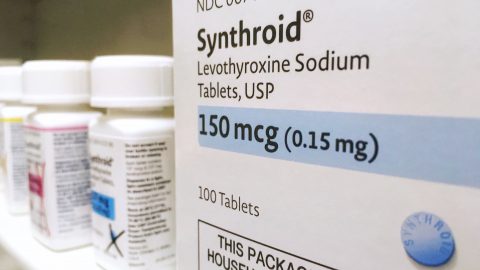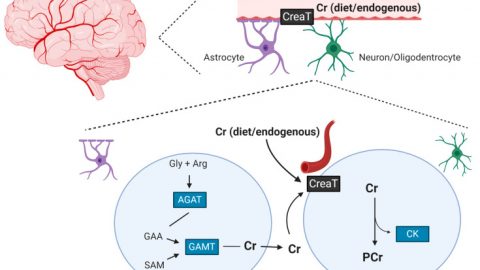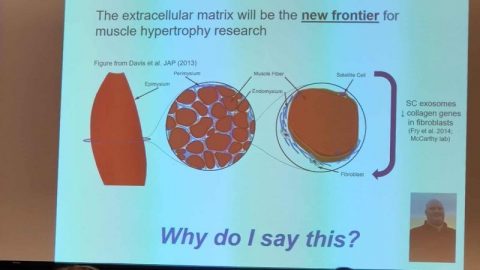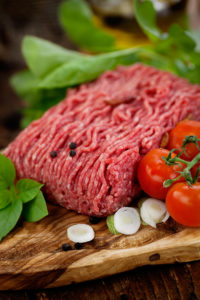In 2000, I wrote an extensive article on lactoferrin, a peptide with some truly interesting studies that suggest it has a wide range of benefits to human beings. The article was published in the October 2000 issue of the Life Extension Magazine and was titled “Lactoferrin: The Bioactive Peptide that Fights Disease.” The article summarized an extensive body of research showing lactoferrin to have immune boosting, anti cancer, anti microbial, anti inflammatory, and anti oxidant properties, to name a few benefits. Recent research continues to find a wide range of potential benefits to this bio active peptide derived from whey proteins. As it’s been over a decade since I wrote that article (man how times flies!) I decided it was time for an update using more recent research. What follows is what I turned up, and it only adds to my positive opinion of this amazing peptide!
Recent cancer findings:
A 2010 study in the Journal of Dairy Science (1) called “The effect of bovine milk lactoferrin on human breast cancer cell lines” gave additional support to lactoferrin as an anti cancer nutrient. In this study specifically, lactoferrin’s effects on human breast cancer cell lines. The authors of this study summarized well the effects of this bio-active peptide; “Lactoferrin is an iron-binding protein that has been reported to inhibit several types of cancer.”
In this study, the authors tested lactoferrin on human breast cancer HS578T and T47D cells. Cells treated with lactoferrin had approximately a 2-fold increase in apoptosis (programmed cell death) for both cell lines. Proliferation of these cancer cells rates decreased by 40.3 and 63.9% for both breast cancer cell lines respectively. The authors concluded “…this work suggest that lactoferrin interferes with some of the most important steps involved in cancer development.” This study supports many prior studies that find bovine (derived from cows milk) lactoferrin is a powerful anti cancer peptide.
The above study is in-vitro (test tube) using cell lines. However, in-vivo (a living system) also continue to find impressive anti cancer effects of lactoferrin for a variety of cancer types. For example, a recent study found immune deficient mice given lactoferrin and then exposed to human B-cell type lymphoma have dramatically increased survival rates, leading the authors to conclude that due to the clear success of lactoferrin as an anti cancer agent against B cell human lymphoma in these immune deficient mice, lactoferrin “…warrants further investigation as a novel therapeutic agent for the possible treatment of B-cell non-Hodgkin lymphomas” (2)
Perhaps most exciting was a recent review entitled “Cancer prevention by bovine lactoferrin: from animal studies to human trial” (3) which reviewed both the animal and human data regarding the effects of lactoferrin as a potential anti cancer nutrient. The authors extensive review of the data concluded, “Administration of bovine lactoferrin (bLF) suppresses carcinogenesis in the colon and other organs of test animals, and recently it was shown that ingestion of bLF inhibits the growth of adenomatous polyps in human patients.” As mentioned above, the authors review the results of a clinical trial which demonstrated that bLF can reduce the risk of colon carcinogenesis in humans. This study was one of the most promising to date showing the amazing anti cancer effects of lactoferrin. The study was entitled “Effect of orally administered bovine lactoferrin on the growth of adenomatous colorectal polyps in a randomized, placebo-controlled clinical trial.” (4)
This was a randomized, double-blind, controlled trial with 104 participants, ages 40 to 75 years, with pre existing polyps likely to be adenomas. There were three groups to this study, two treatment groups and a placebo. Group one received 1.5g of lactoferrin daily for 12 months, while active group two received 3.0g lactoferrin daily for 12 months. The authors tracked the groups target polyps by colonoscopy. The authors found “ Ingestion of 3.0-g bLF significantly retarded adenomatous polyp growth in participants 63 years old or younger” and concluded “Our study suggests that daily intake of 3.0 g of bLF could be a clinically beneficial adjunct to colorectal polyp extraction.” That is, their study suggests that people with preexisting colorectal polyps may be able to significantly reduce their size prior to removal, which could have wide ranging benefits.Other studies suggest continues use of lactoferrin may prevent such growths in the first place, and or, reduce their size and likelihood of being cancer. Recent studies also support the many prior studies showing lactoferrin to be a powerful anti microbial, anti viral agent, and immune modulator (5,6,7, 8, 9, ) covered extensively in prior articles in the Life Extension Magazine
So What Is Lactoferrin?
As mentioned briefly above, lactofferin is a peptide found in whey proteins, another popular health promoting supplement. Whey – one of two major proteins found in milk – complex protein made up of many smaller protein subfractions (peptides) such as: Beta-lactoglobulin, alpha-lactalbumin, immunoglobulins (IgGs), glycomacropeptides, bovine serum albumin (BSA), and minor peptides such as lactoperoxidases, lysozyme, and lactoferrin. Each of the sub fractions found in whey has its own unique biological properties. Up until quite recently, separating these subfractions on a large scale was either impossible or prohibitively expensive for anything but research purposes. Modern filtering technology has improved dramatically in the past few years allowing a handful of companies to separate some of the highly bio active peptides from whey, such as lactoferrin and lactoperoxidase. Many of these sub fractions are only found in very minute amounts in cows milk, normally at less than one percent. For example, though one of the most promising subfractions for preventing various diseases, improving immunity and over all health, lactoferrin makes up approximately 0.5 – 1% or less of whey protein derived from cows milk (where as human mothers milk will contain up to 15% lactoferrin). Lactoferrin appears to be a truly amazing subfraction of whey with documented anti- viral, anti- microbial, anti -cancer, and immune modulating/enhancing effects. There is little doubt that lactoferrin could become the natural compound of choice in the treatment and prevention of a host of human ailments and the recent studies outlined above, continues to support that statement. Recapping some of the more amazing potential benefits of lactoferrin:
Lactoferrin and immunity:
Most research points to lactoferrin as being more of an immune modulator rather than a simple immune stimulant. Needles to say, lactoferrin’s role in the host immune response is extensive and beyond the scope of this article. Published studies that have examined the use of lactoferrin as a supplement and its effects on immunity have been quite promising. Research using various animals models (i.e., rats, sheep, pigs, cats, as well as others) has found the ingestion of lactoferrin to have direct protective effects on the regulation and modulation of the immune system.
For example, one study that examined the immune response to an endotoxin (lipopolysaccharide) known to cause severe septic shock found feeding lactoferrin to mice “dramatically reduced the lethality” of this endotoxin while improving immune response parameters. Another study with baby pigs found only 17% of the pigs died when fed lactoferrin and injected with the endotoxin escherichia coli as opposed to 74% of the pigs died without the lactoferrin! Lactoferrin has been shown to dramatically increase the numbers of good micro flora such as bifidus while decreasing the numbers of bad bacteria such as E.coli, streptococcus, clostridium, and others, when fed to adult animals and human infants, thereby establishing a desirable intestinal flora known to be essential for optimal health, immunity, and resistance to disease. An extensive review that examined the role of lactoferrin in inflammation and the health of the intestinal tract stated “The possibility that lactoferrin limits the autodestructive inflammatory response presents a new alternative for the future management of systemic inflammation.” Some research also suggests lactoferrin is able to stimulate intestinal cell growth and may lead to better digestive functions in addition to its ability to enhance the growth of “good” microflora in the intestine.
Anti-viral effects of lactoferrin.
Lactoferrin has been found to both directly and indirectly inhibit several viruses that cause disease in humans. Lactoferrin directly inhibits viruses by binding to viral receptor sites thus preventing the virus from infecting healthy cells. In addition to this, lactoferrin indirectly kills or inhibits viruses by augmenting the systemic immune response to a viral invasion. It’s interesting to note that there is a systemic deficiency of lactoferrin in people with HIV infection. One study that examined 22 asymptomatic, 45 symptomatic patients with HIV compared to 30 healthy controls found “ levels of plasma lactoferrin are decreased in HIV-1 infected patients in relation to the progression of the disease.” Another study found that the lack of lactoferrin (and secretory Iga) found in the oral cavities of people with HIV correlated strongly with the frequent infections in those areas often seen with patients with AIDS. Lactoferrin was also found to have “potent” anti viral effects against the replication of both human HIV and cytomegalovirus (CMV) virus in several in vitro studies with no cytopathic effects on healthy cells.
Anti-cancer effects of lactoferrin
As the more recent studies above confirmed, perhaps one of the most promising uses for lactoferrin may be in its potential as a non toxic anti cancer agent. Multiple studies using both rats and mice exposed to a toxic chemical (azoxymethane) known to cause tumors throughout the gastro intestinal tract, administered concomitantly with lactoferrin, showed a large reduction in intestinal polyp development throughout the intestinal tract , now with human studies (see above) confirming that effect in humans. Other studies found the addition of lactoferrin to cancer prone mice subjected to cancer causing chemicals reduced the number of tumors and suppressed angiogenesis (the production of new blood vessels) which tumors need to survive. The studies also found lactoferrin “significantly inhibited” liver and lung metastasis of cancer cells in these animals.
Conclusion
As the reader can see, very recent studies (2009, 2010, 2011) supports earlier studies findings recapped above. There is little doubt that lactoferrin is a major find and a potential breakthrough as a natural non-toxic treatment in an amazing array of human ailments with more studies coming out with ever greater frequency.
Sources:
(1) Duarte DC, Nicolau A, Teixeira JA, Rodrigues LR. The effect of bovine milk lactoferrin on human breast cancer cell lines. J Dairy Sci. 2011 Jan;94(1):66-76.
(2) Furlong SJ, Mader JS, Hoskin DW.Bovine lactoferricin induces caspase-independent apoptosis in human B-lymphoma cells and extends the survival of immune-deficient mice bearing B-lymphoma xenografts. Exp Mol Pathol. 2010 Jun;88(3):371-5. Epub 2010 Feb 18.
(3) Tsuda H, Kozu T, Iinuma G, Ohashi Y, Saito Y, Saito D, Akasu T, Alexander DB, Futakuchi M, Fukamachi K, Xu J, Kakizoe T, Iigo M. Cancer prevention by bovine lactoferrin: from animal studies to human trial. Biometals. 2010 Jun;23(3):399-409. Epub 2010 Apr 21.
(4) Kozu T, Iinuma G, Ohashi Y, Saito Y, Akasu T, Saito D, Alexander DB, Iigo M, Kakizoe T, Tsuda H.Effect of orally administered bovine lactoferrin on the growth of adenomatous colorectal polyps in a randomized, placebo-controlled clinical trial. Cancer Prev Res (Phila). 2009 Nov;2(11):975-83. Epub 2009 Oct 27.
(5) Wiesner J, Vilcinskas A.Antimicrobial peptides: The ancient arm of the human immune system. Virulence. 2010 Dec 22;1(5):440-64.
(6) Taha SH, Mehrez MA, Sitohy MZ, Abou Dawood AG, Abd-El Hamid MM, Kilany WH. Effectiveness of esterified whey proteins fractions against Egyptian Lethal Avian Influenza A (H5N1). Virol J. 2010 Nov 19;7:330.
(7) Legrand D, Mazurier J.A critical review of the roles of host lactoferrin in immunity. Biometals. 2010 Jun;23(3):365-76. Epub 2010 Feb 9.
(8) Puddu P, Valenti P, Gessani S.Immunomodulatory effects of lactoferrin on antigen presenting cells. Biochimie. 2009 Jan;91(1):11-8. Epub 2008 May 21.
(9) Yamauchi K, Wakabayashi H, Shin K, Takase M.Bovine lactoferrin: benefits and mechanism of action against infections. Biochem Cell Biol. 2006 Jun;84(3):291-6.
* = In the form of iron depletes (apo) bovine lactoferrin (bLF)
Will Brink is the owner of the Brinkzone Blog. Will has over 30 years experience as a respected author, columnist and consultant, to the supplement, fitness, bodybuilding, and weight loss industry and has been extensively published. Will graduated from Harvard University with a concentration in the natural sciences, and is a consultant to major supplement, dairy, and pharmaceutical companies.
His often ground breaking articles can be found in publications such as Lets Live, Muscle Media 2000, MuscleMag International, The Life Extension Magazine, Muscle n Fitness, Inside Karate, Exercise For Men Only, Body International, Power, Oxygen, Penthouse, Women’s World and The Townsend Letter For Doctors.
He’s also been published in peer reviewed journals.
Will is the author of the popular e-books, both accompanied by private members forum access , Bodybuilding Revealed & Fat Loss Revealed.
You can also buy Will’s other books on Amazon, Apple iBook, and Barnes and Noble.







Will, my partner has also been through non-Hodgkin + thyroid (and more recently breast cancer) and recovered, so I’m particularly interested in lactoferrin. Is it currently available in any useful form?
Also, would goat whey protein powder have a higher percentage of lactoferrin than bovine whey?
Thanks for the article, Les.w
If you hit the linked article above, it will take you to the LEF page. They sell pure lacroferrin. That’s the brand I use.
O.K. thanks – For U.K. viewers, I’ve now found LE lactoferrin is available from Amazon UK.
good article, thanks for the update on lactoferrin
spell check didn’t catch “Needles to say”
Hi Will, another fantastic article. As someone with an immunity related disease (psoriatic arthritis) and taking medication which suppresses my immune system, I am interested to see what effect regularly taking lactoferrin may have. Has there been any studies on what daily dosage is effective? Within your article you noted on the study regarding people with polyps “Our study suggests that daily intake of 3.0 g of bLF could be a clinically beneficial adjunct to colorectal polyp extraction”. I also noticed on the order page for lactoferrin that they prescribe a daily dose of 300 mg. How did they get to that amount as a daily dose?
The optimal dose is unknown in humans at this time. If you look at the article, especially the first article, study doses are all over the place. Some do find benefit at doses as low as 300mg, with some using higher doses, in the multi gram range. At this point, I’d probably recommend at least 300mg to a gram (1000mg) plus per day based on the data that exists to date.
‘
Thanks Will. I’ve ordered some from LEF and will probably start out at 1.2 grams per day (4 pills) for a month just to see if it has any effect on my psoriasis, then adjust from there.
hey PSA_Batman, I tried it for psoriasis at 300mg but it didn’t help, it would be interesting to see if it helps you. good luck with it
Hi Jeff, thanks for the feedback. I’m on remicade which keeps my arthritis in remission, however still have a couple of spots of psoriasis. I’m keen on finding alternative treatments as my current employment pays for the remicade treatment, however if I ever change job then my next employer may not be so accommodating. I live and work in Asia where there is no law for health insurance portability, such as COBRA. Another person I know also has psoriasis and is not on a biologic, so I’m trying to enroll them as a guinea pig for lactoferrin too. I’ll let you know what results we get.
PLEASE-PLEASE–MAKE A VIDEO OF THIS YOU TALKING WITH YOUR CUP OF TEA?? IS SO MUCH BETTER FOR GUYS LIKE ME TO GET IT. I DON’T THINK YOU KNOW HOW SMART YOU ARE AND HOW WELL YOU EXPLAIN THINGS SO WE DO GET IT THANKS RICH
Hey Will,
I see that bLF makes up such a tiny percentage of whey. Can we get anywhere near enough LF from whey protein powder drinks alone?
Thanks!
Unknown as the optimal human dose is unknown. The life extension adds additional bLF to it’s whey on my advice BTW.
A very interesting article on Lactoferrin. Well researched and informative
I just bought lactoferrin. Pretty expensive, isn’t it? I am planning on taking 250mg daily (1 pill) for acne. I am also on probiotics (L. reuteri) but i will drop that once it’s finished and continue only with lactoferrin. Anyone who is interested with my results, reply to this post and i will answer your questions. In a few weeks i hope to have good news to share. Also, i just started with oil fish and i am already on zinc since late October. It will be difficult for me to associate any improvement with some specific supplementation, but i will try. I finished my last cycle of antibiotics last December. My acne worsened a lot after that. I am desperately trying several things before decide to go one more time with accutane. Greetings for Brazil.